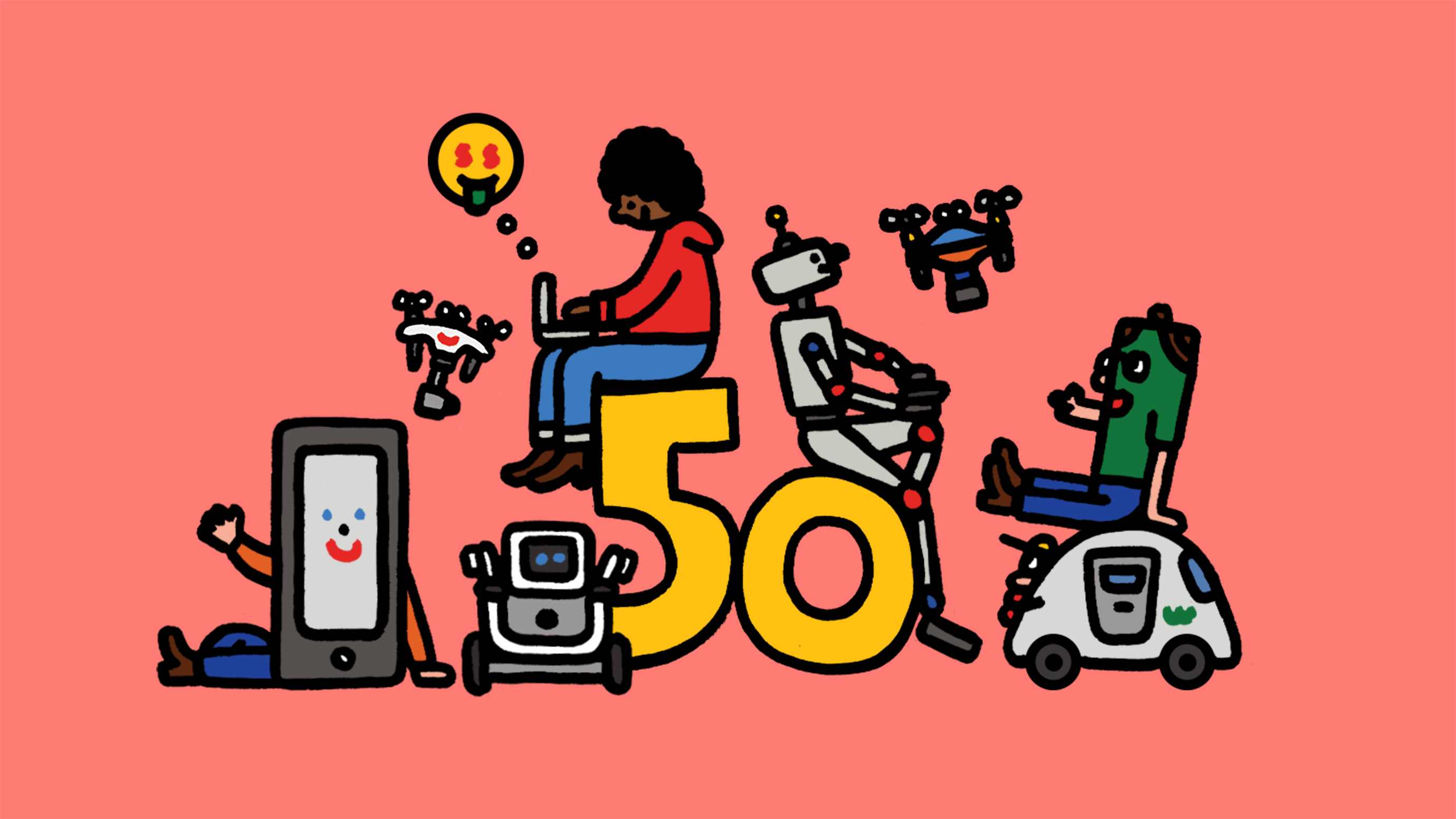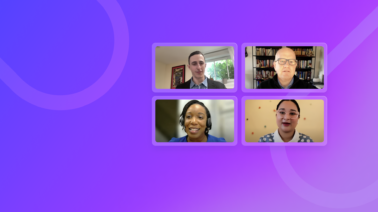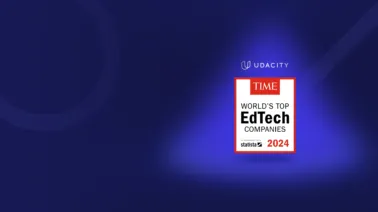
MIT Technology Review’s 50 Smartest Companies list has come to be considered a kind of innovation bellwether, signaling what the future holds, how we’re going to get there, and who will lead us onwards. All at Udacity are both thrilled and humbled to be included on this year’s list, and we thank everyone involved in the decision-making process for recognizing our efforts in this way. We especially wish to thank our students, for there is no Udacity without you. We thank our partners as well, who help make everything we do possible.
It has often been said that one is only as smart as the company one keeps. If that’s the case, then we are indeed a fortunate organization, given how many of our partners are featured on this list, among them Amazon, Alphabet, IBM, Daimler and Facebook. NVIDIA, one of our key partners for our Self-Driving Car Nanodegree program, even has the honor of holding the #1 spot! We congratulate them all for their success. Seeing these companies recognized in this fashion makes us all the more excited to have them as our partners, knowing that our students directly benefit from the groundbreaking curriculum they help us build, and the incredible career opportunities they help us make possible.
Each year, the 50 Smartest Companies list arrives sounding notes of both celebration and caution. On the one hand, the list celebrates those organizations it feels are best combining technological innovation with sound business models. As David Rotman writes in “It Pays to Be Smart,” the essay which accompanies the announcement, “The list is our best guess as to which firms will be the dominant companies of the future.” On the other hand, the list serves to highlight critical issues we must face if our innovations are to be truly meaningful for a the world at large. Rotman concludes his essay by saying:
“We do need companies to aggressively push the frontiers of innovation. Still, as we celebrate our 50 Smartest Companies, it is worth keeping in mind the importance of distributing know-how, and the wealth it produces, more broadly.”
The 2017 list was announced this morning, and Nanette Byrnes, the Senior Editor for Business, had this to say about those included:
“The companies on the list combine a high level of technology innovation with a business model that will help them make the most of it. Public and private, large and small, based in countries around the globe, this group of companies is creating new opportunities and pouncing on them. These are the ones that competitors must follow.”
Just about this time last year, the MIT Technology Review released the 2016 edition of its 50 Smartest Companies list. The companies featured on that list ran the gamut from expected giants like Amazon and Alphabet, to relative newcomers like 23andMe and Airware. Accompanying the 2016 announcement was an opening essay with the provocative title “Dear Silicon Valley: Forget Flying Cars, Give Us Economic Growth.” That essay functioned as a kind of call-to-action for Silicon Valley innovators, urging them to remember that transformational technologies like AI truly matter only when they can produce real and meaningful progress in our daily lives. The 2016 essay ended on a sober note, concluding that when it comes to innovation, “We would gladly settle for a healthy economy and more well-paying jobs.”
With last year’s essay as context, we can see something else in these 2017 selections beyond just a compelling balance of innovation and acumen—we can see recognition of companies who are committed to something beyond technological innovation for innovation’s sake. It is perhaps for this reason above all else that we are so proud and excited to be included on the MIT Technology Review’s 2017 list. Because we ARE committed to something beyond technology. We are committed to you, our students.
We’d be lying if we said we weren’t excited about technologies like Artificial Intelligence, Deep Learning, and Self-Driving Cars. We are. We see the future of the world in them. But that’s not why we teach them. We teach these technologies to put their promise and potential in your hands.
Self-empowerment through learning is the greatest gift one gives oneself, but it is also a gift to the world. A technology like Artificial Intelligence depends on its engineers for its moral compass. As Dr. Rana el Kaliouby, a pioneer is the field of Emotion AI, has stated, “Our algorithms are actually more accurate when we can train using diversity.” For AI to matter, it must develop under the watchful care of individuals committed to positive values. This is why education and technology must advance side-by-side into the future.
If Udacity is a “smart” company, it is only so because of the students it is our privilege to teach. We do not exist without you. It is an honor to receive this recognition from MIT Technology Review, but the deepest pleasure is in supporting the learning you engage in everyday.



